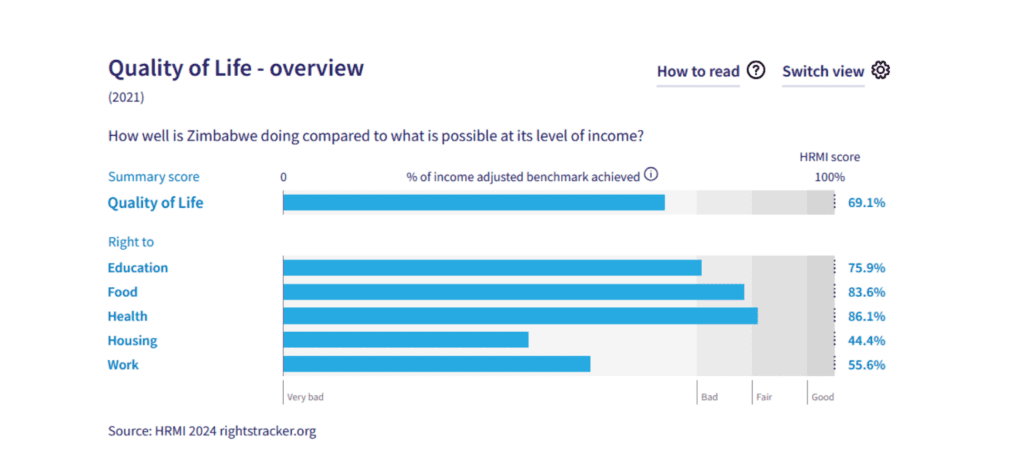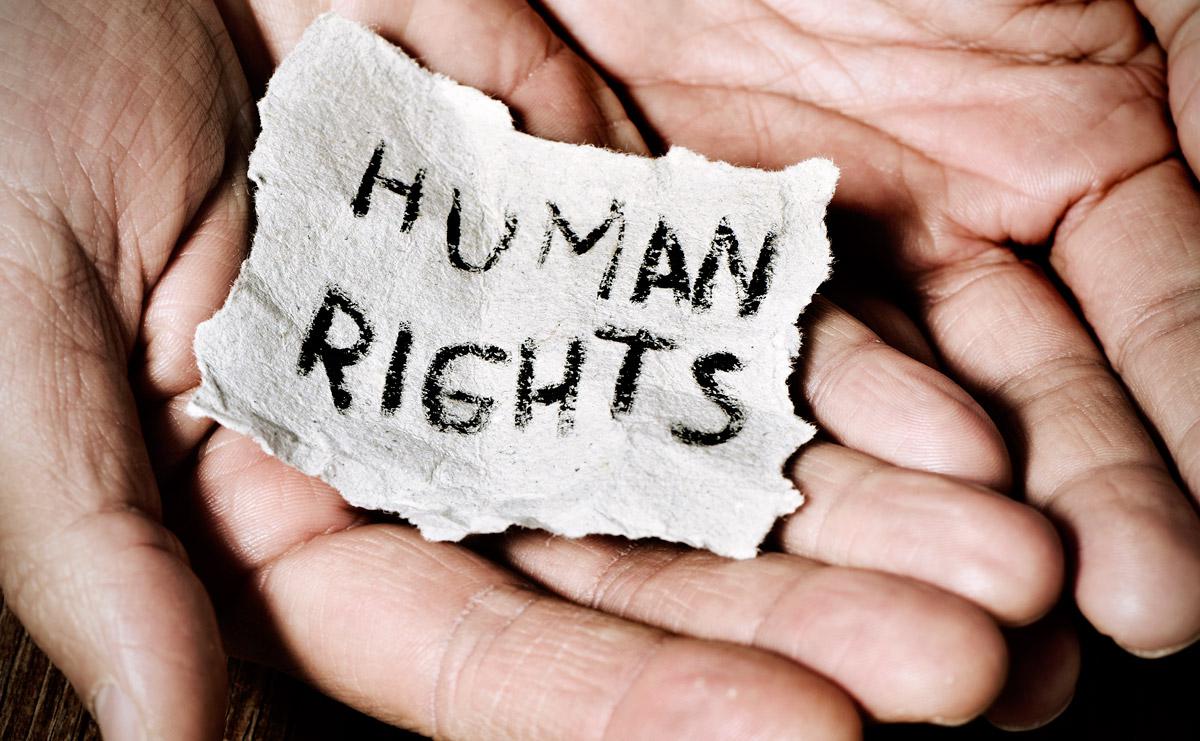Zimbabwe has significant work to do in meeting its human rights obligations, according to the latest data from the Human Rights Measurement Initiative (HRMI).
The independent NGO uses peer-reviewed methodologies to assess global human rights performance, and its findings for Zimbabwe show mixed results across key areas like health, housing, education, and work.
The report highlights Zimbabwe’s best score in the area of reproductive health, where it achieves 100%, reflecting the best outcomes possible for its level of income.

However, the right to housing falls into the “very bad” range, with many citizens lacking access to clean water and basic sanitation—services deemed achievable at Zimbabwe’s economic level.
Compared to its Southern African neighbors, including Botswana, South Africa, and Malawi, Zimbabwe trails in housing rights, raising concerns about resource allocation and policy priorities.
HRMI co-Executive Director Thalia Kehoe Rowden expressed cautious optimism. “Our analysis is that Zimbabwe currently has the resources to achieve much more for its people. We hope to see in future years that the government has made decisions that lead to better outcomes for the people of Zimbabwe, and these scores steadily increase.”
Nkosi Sibanda, HRMI’s Zimbabwe representative, underscored the critical need for action.
‘As Zimbabwe struggles to fulfil its constitutional promise of safe, clean, and potable water for all, the HRMI data highlights the urgent need for equitable and resource-efficient solutions,’ said Nkosi Sibanda from HRMI in Zimbabwe. “Access to housing and basic sanitation reflects not just human dignity but the foundation of a thriving society. Our work at HRMI aims to support a more informed and unified approach to addressing these challenges, ensuring every Zimbabwean can live in dignity and security.”
In June 2025, HRMI will release its first-ever civil and political rights scores for Zimbabwe, providing a deeper look at areas like freedom of speech and protection from torture. The data will also shed light on vulnerable groups most at risk of rights violations.
The full HRMI dataset is freely accessible on RightsTracker.org and is updated annually. The initiative aims to equip governments, civil society, and international organizations with the insights needed to drive meaningful change.

